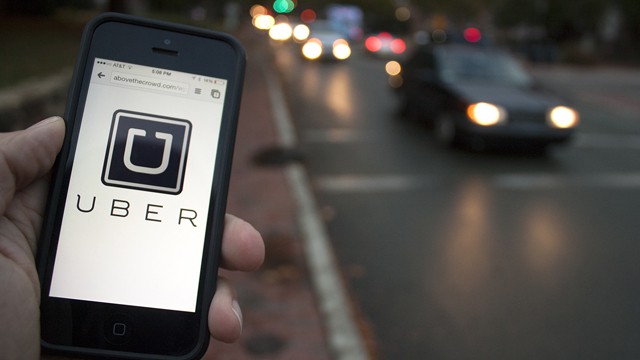Will Uber Surging Forward in Toronto Affect Mississauga?
Published July 18, 2016 at 2:16 pm

While drivers for Uber and other private driving companies can officially operate in Toronto, those west of the Big Smoke are still waiting on a solution regarding the embattled ridesharing company.
According to a recent 680 News article, a new vehicle-for-hire bylaw came into effect on Friday. Toronto, which has been working with rather than against the ridesharing company for some time now, created the Private Transportation Company (PTC) licensing category to accommodate Uber and similar operations. According to the article, Uber and companies like it must apply for the same license as taxi and limousine companies.
Fortunately for everyone, Uber is on board with the bylaw.
“Over the last two months, we have been working to come into compliance with Toronto’s new by-law. We have applied for our PTC license and look forward to receiving it from the City of Toronto soon,” Uber spokesperson Susie Heath told CityNews.
Here’s a look at some highlights of the bylaw, as selected by 680 News:
◦ With the new rules, taxis will be able to use surge-pricing – much like how Uber adds extra fees during busy times – but only for fares that are booked through an online app.
◦ The base fare for Uber will increase by 75 cents to $3.25.
◦ All vehicles must be inspected twice a year.
◦ Uber drivers will also be required to get $2 million in liability insurance.
◦ A proposal that would have required Uber vehicles to have winter tires was amended to allow for all-season tires.
While TO has struggled to accommodate the popular but technically once-illegal service, it looks like the city has hammered out a solution that incorporates the company — and others like it — into the city’s transportation-for-hire framework. Mississauga is attempting to put together a ridesharing pilot program that will test drive Uber and other ridesharing companies in the city, but has fallen victim to delays, raucous protests and infighting.
Recently, former mayor Hazel McCallion recommended terminating the company in Mississauga. Current Mayor Bonnie Crombie is a careful but consistent Uber supporter who believes, rightly, that consumer demand is an important consideration (and, when it comes to Uber, the consumers have indeed spoken).
Crombie recently suggested looking to Toronto for ideas on how to legalize the controversial but popular company and, while some — including city councillors — may argue that Mississauga needs a “Mississauga solution,” it seems prudent to take a page or two from TO’s book when it comes to formally letting the company operate legally in the city. To be clear, Uber is currently operating in Mississauga, but is doing so in violation of city bylaws. While council agreed to lift a “ban” on the company (it recently asked Uber to cease operations completely until the pilot program launch and then rescinded the request), drivers can still be fined if caught transporting passengers.
The pilot program was supposed to launch June 29, but has been delayed until September.
Perhaps, to finally end the headache, the city should review Toronto’s legalization process and, if it works, adopt it (completely or partially).
insauga's Editorial Standards and Policies advertising





